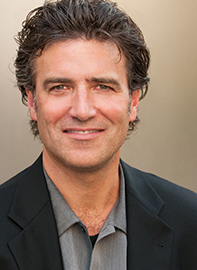As the mainstream media struggles to deliver instantaneous news, thought provoking in-depth news, which costs time and money to develop, can fall by the wayside. Spot.us is a website that encourages “community powered reporting”, allowing the public to choose and fund the stories they want to hear.
At Spot.us there are no sensationalist stories. Readers can find mostly hard-hitting, watchdog journalistic news stories ranging from the BP oil spill after effects, green energy, to race and demographics. Since launching in November 2008, the website has helped fund and publish over 90 stories across the country.
Founder, Dave Cohn says, “Spot.us is an experiment. We are learning all the time and the more people learn from what we are doing, by pushing the boundaries and transparency in the process of journalism.”
Story ideas are submitted by writers, ranging from Pulitzer Prize winning journalists to students. Then investors in the form of individuals, news papers, or organizations fund the stories they would like to see. Some of the highest paid stories ideas, resulted in several articles, and raised about $13,000. All payments are retroactive, so journalists are not paid until they finish the story. After the story is written, it is released under a Creative Commons license it is free for individuals and organizations to reprint or read.
Spot.us partners with interested news organizations to publish and edit the stories. Cohn says the majority of news organizations are excited about partnering with Spot.us, but some view them as competition. Some news organizations have even decided fund the whole or majority of the journalist story idea, so that they could have an ownership stake in the project. As owners in the project, that organization has primary rights to the story.
One of the most popular story ideas from Spot.us, covered the Great Pacific Garbage Patch and was picked up by the New York Times. The New York Times public editor, Clark Hoyt wrote about the relationship, “As newspaper advertising revenue declines and technology drastically changes the public’s relationship with news organizations, The Times is searching for new streams of money and opening itself to partnerships and arrangements far from the old model, in which editors decide what news is, assign their own reporters and pay the expenses – all of it supported by hundreds and hundreds of advertisers, none big enough to influence the journalism in any way.”
Spot.us community funded reporting allows journalists to cover local issues that news organizations may not have the capacity or funding to do themselves. Best of all, readers get to choose which articles they would like to read. In a world where journalism is fast becoming an endangered art, threatened by celebrity “news”, reality TV stars, and political sex scandals, Spot.us could be the light at the end of the tunnel.









